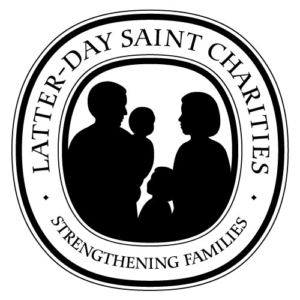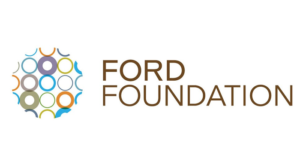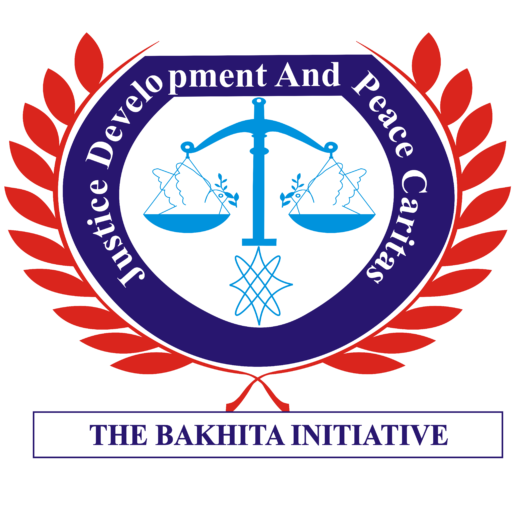Ongoing Projects
THE SPEARHEADING HUMANITARIAN EMERGENCY RESPONSE AND RECOVERY (SPHERE PROJECT) IN SOKOTO AND KEBBI STATE (KYAUTATA RAYUWA PROJECT II)
Project Goal: aims to ensure food and nutrition security and dignified lives for the most vulnerable population. This will be achieved by improving food availability and accessibility through unconditional food assistance to 800 households (4,800 individuals), enhancing the nutritional status of 4,000 acutely (moderate) malnourished children aged 6-59 months and pregnant and lactating women, and improving water, sanitation, and hygiene conditions.
The project will actively address the challenges and needs of internally displaced persons (IDPs) and their host communities. Catholic Relief Services (CRS) and The Bakhita Initiative (TBI) will collaborate to implement the SPHERE project in Kebbi and Sokoto states, providing food assistance, nutrition, and WASH services in a safe and dignified manner. The project will reverse the pressing issues through proven technical models, such as e-vouchers for food assistance and field crops production, and integrated homestead farming for household food security. It will utilize nutrition-sensitive climate-smart agriculture, Tom Brown, Management of Small and Nutritionally At-Risk Infants Under Six Months (MAMI), Maternal Infant and Young Child Nutrition (MIYCN), and WASH in emergencies to deliver meaningful change.
Key Intervention Areas
Food Assistance
- SPHERE will provide pre- and lean-season unconditional food assistance for 6 non-continuous months. CRS and TBI will conduct e-voucher distribution to 800 IDP, returnee, and host community households (4,800 individuals).
Agriculture
- 250 farming families will be provided with one-off-hand cropping season agricultural inputs such as Sorghum, Millet, Maize, Groundnuts, Cowpeas, Sesame, OFSP, Eggplants, Amaranthus, and other vegetables and tools through e-vouchers and technical training on climate-responsive agronomic practices.
- Three phases of an 8-week targeted supplementary feeding program for 4,000 children 6-59 months will be implemented using the CRS Tom Brown program approach.
- Social behavior change through maternal infant and young child nutrition counselling using the care group model to promote optimal feeding practices among pregnant and lactating women and men.
- Through 28 Community Nutrition Mobilizers (CNMs), the project will reach the participants within 83 Care groups. CNMs will train Lead Mothers and care givers in preparing supplementary food and provide them with access to Tom Brown ingredients through trained vendors.
- Prevention of early onset of acute malnutrition through management of 400 infants under six months of age and their mothers.
- Backyard/kitchen/home gardening to strengthen dietary diversification of nutrient-rich, climate-smart local vegetables and fruit trees such as moringa, orange-flesh sweet potatoes, Amaranthus, and eggplants. Participants will be encouraged to save vines/seedlings for future use to ensure continuous access for sustainability.
WASH
- CRS and TBI will engage private contractors to construct 40 latrines and rehabilitate the Public Water System Infrastructure to increase access to clean water and safe excreta disposal facilities.
- Training in social behavior change education/communication to support hygiene promotion, environmental sanitation/Clean-up campaigns, and solid waste management.
- WASH NFIs and Female Hygiene Kits (FHK) distribution, especially targeting vulnerable, displaced, or flood-affected households.
Protection Mainstreaming
The program will create and maintain a safe and dignified environment for project participants by promoting gender equality, preventing Gender Based Violence(GBV), and addressing protection risks by integrating protection into all the interventions.
Operational Area:
- Wamakko and Wurno LGAs, Sokoto State.
- Koko-Basse LGA, Kebbi State
Funded by: Latter-day Saint Charities (LDSC)

Duration of the Project: 18 months
UPHOLDING HUMAN RIGHTS IN NORTHWEST NIGERIA
ACCORDION_CONTENT_2
GIRL CHILD MENTORSHIP AND EDUCATIONAL ENROLMENT PROJECT IN SOKOTO AND KATSINA STATES IN NORTHWEST, NIGERIA
According to enrollment statistics in 2022, Sokoto State had approximately 38% girl-child enrollment in primary schools, while Katsina State recorded approximately 45%. These figures are significantly lower than the national average of 61%, underscoring the urgent need for targeted interventions to improve girl-child education in these regions.
The objective of this project is to address the growing number of out-of-school female learners in Sokoto and Katsina States by tackling the key factors contributing to the problem. These include early marriage, illiteracy, insecurity, cultural and religious beliefs, poverty, and lack of educational support from parents.
The project aims to implement targeted interventions such as:
-
Educational Support Programs: Providing scholarships, school supplies, and learning materials to encourage girls’ enrollment and retention.
-
Community Sensitization: Raising awareness about the importance of girls’ education and the negative impact of early marriage.
-
Economic Empowerment Initiatives: Supporting families economically to reduce financial barriers to girls’ education.
-
Safe Learning Environments: Advocating for safer, more accessible schools to address security concerns.
Through these measures, the project seeks to increase school enrollment, retention, and successful completion rates among girls in Sokoto and Katsina States, ultimately aligning with the national average and reducing the educational gap
PROJECT OBJECTIVE
- To reach 4 Parents/Teachers Associations who become progressively more aware of the need to have the girl-child in school by way of enrolment, retention and truly graduate at the primary and post-primary levels.
- To reach a total of 100 learners in 4 schools (4 Diocesan schools) in Katsina and Sokoto States.
- To form a sustained partnership/referral pathway on education within areas of project implementation
State of Implementation
Sokoto and Katsina States
Schools of Implementation
- Holy Family Schools, Sokoto State
- St. Patrick Schools Illela, Sokoto State
- St. Theresa’s Catholic Schools Funtua, Katsina State
- St. Vincent Ferrer College, Malumfashi, Katsina State
Completed Projects
TO SUPPORT THE DEVELOPMENT OF AN ETHICAL FRAMEWORK AND RELIGIOUS INTERVENTION TOWARDS COMBATTING VIOLENCE AGAINST WOMEN AND GIRLS (VAWG) IN NIGERIA
Purpose:
Engage key stakeholders at the regional and national levels to design an inclusive national religious policy framework for preventing and combating gender-based violence in Nigeria
Context and Need for the Project
Sexual and gender based violence are the current issues confronting the world today. In many parts of the world, including Africa, sexual and gender based violence have both theological and cultural roots that date back to the origin of mankind. The theological root of sexual and gender based violence, for example, is rich with evidence of male dominion where women are ascribed a subordinate status. Women are exposed to all forms of abuse ranging from rape, assault and practices that undermine their dignity and sexuality. Sexual and gender based violence subjects the women to emotional and psychological tortures leading to frustrations or even death. For example, in some Nigerian societies, widwos are subjected to a number of oppressive and dehumanizing treatments. They are compelled to sleep on bare floor, wear rags, eat food from broken, unwashed plates, does not wash her body for several days or weeks, forced the widows to drink water that was used to wash the late husband’s corpse, take the oath publicly to prove their innocence of not been responsible for the husband death, loses their rights to the deceased property or male children automatically died if she refuses to take the oath or drink the water used in washing the husband’s corpse. Some of these practices are frequently excused, tolerated and sometimes justified in the communities using religious texts. With the outbreak of the COVID 19 pandemic, the incidences of sexual and gender-based violence increased in Nigeria.
According to the World Health Organisation, 35% of women globally have already experienced some form of sexual and gender-based violence in their lifetime. In Nigeria, the reported cases of rape across the country largely skyrocketed during the lockdown, leading to riots and protests by women across the country. Human rights campaigners took to the streets in Abuja, Edo and Kano states, to demand urgent action to combat rape. and sexual violence against women. A recent study commissioned by the Ministry for Women Affairs and Social Development and UNFPA asserts that “28% of Nigerian women aged 25-29 have experienced some form of physical violence since age 15.” Also, the risk of violence varied based on marital status as “44% of divorced, separated or widowed women since age 15, while 25% of married women or those living with their spouses have experienced violence.” In addition, research and data collected on the impact of COVID-19 revealed increased in the levels of violent incidents against women and girls during the lockdown. We also note that the reality of religion as both an institutional and personal heritage among the people of Nigeria puts it as an important leverage in the cause against violence on women and girls and the rights of the Girl Child. This is in consonance with the 2020 theme on the International Day of the Girl Child which is “My voice, our future.”
Religious leaders and faith-based organisations have a role to place in preventing and combating gender-based violence in Nigeria. Religious leaders have the duty of edifying the people’s culture and belief systems to discourage sexual and gender based violence in the society. Therefore, there is a need religious scholars, religionists, traditional and religious leaders to take phenomenological and non-violence approaches to eradication of sexual and gender based violence. The project is committed to developing a National Policy Framework for Preventing and Combating Gender-based Violence in Nigeria.
Duration: 2 Years
Implementing Agencies
Name; Address; Telephone Numbers; Email;
Website
- The Kukah Centre: Faith, Leadership and Public Policy
1 Luanda Crescent, American Specialist Hospital Complex
Opp. Rockview Royale Hotel
Wuse 2, FCT-Abuja
Numbers: +2349031149816
Email: atta.barkindo@kukahcentre.org; kukahcentre@gmail.com
Website: https://thekukahcentre.org/
- The Bakhita Initiative (JDPC Sokoto)
St. Bakhita Diocesan Secretariat,
2 Aliyu Jodi Road,
Sokoto – SOKOTO STATE
Office Tel: +234 705 557 4459
E-mail: jdpc@catholicdiocese-sokoto.org
Attn: Fr. Lawrence Emehel (Ex. Director)
Founded by: Ford Foundation

FOOD SECURITY AND NUTRITION RESPONSE IN SOKOTO STATE (KYAUTATA RAYUWA PROJECT)
Project Goal: Increased food security and nutrition for IDPs, Returners, host Households (HHs), and other vulnerable groups through emergency food assistance, to save lives of 25,259 vulnerable people (4,210 Households) while providing nutrition services and support to children 6-59months, pregnant and lactating women of IDPs, returnees, host communities and other vulnerable groups at community level.
Key Intervention Areas
- Food Assistance
- Improve food availability and accessibility to targeted vulnerable HHs through unconditional food assistance using a market-based approach.
- Registration and selection of the most vulnerable individuals (IDPs and Host community HHs) that will receive this assistance.
- Distributes value-based vouchers to participants in targeted areas over a 5 months period targeting the lean seasons.
2. Nutrition.
The Nutrition sector’s mandate is to address inadequate access to services and support in line with this CRS will;
- Engage affected households on MIYCN-E using the care group model targeted counseling to CGs of Malnourished children.
- Enroll MAM children 6-59months into the TSFP program using TurnBrown(TB).
- Targeted caregivers of CU5, PLWs, and Children discharged from non-respondent will be enrolled into SNA (Using Fresh Food Voucher)
3. Protection Mainstreaming
The program will create and maintain a safe and dignified environment for project participants by promoting gender equality, preventing Gender Based Violence(GBV), and addressing protection risks by integrating protection into all the interventions.
Operational Area:
Wamakko and Wurno LGAs, Sokoto State.
Funded by: Latter-day Saint Charities (LDSC)

Duration of the Project: 26months
UPHOLDING HUMAN RIGHTS IN NORTHWEST NIGERIA
ACCORDION_CONTENT_2
STRENGTHEN CIVIL SOCIETY CAPACITIES FOR EDUCATION FOR ALL FOCUSING GENDER RESPONSIVE EDUCATION SECTOR PLAN (GRESP) AND TSANGAYA REFORMATION
ACCORDION_CONTENT_3
GENDER EQUALITY AND INCLUSION AND ADOLESCENT REPRODUCTIVE HEALTH TO WOMEN'S RIGHTS ORGANIZATIONS AND YOUTH-LED ORGANIZATIONS IN SOKOTO AND BAUCHI STATE.
ACCORDION_CONTENT_3
GIRL CHILD MENTORSHIP AND EDUCATIONAL ENROLMENT PROJECT IN SOKOTO AND KATSINA STATES IN NORTHWEST, NIGERIA
According to enrollment statistics in 2022, Sokoto State had approximately 38% girl-child enrollment in primary schools, while Katsina State recorded approximately 45%. These figures are significantly lower than the national average of 61%, underscoring the urgent need for targeted interventions to improve girl-child education in these regions.
The objective of this project is to address the growing number of out-of-school female learners in Sokoto and Katsina States by tackling the key factors contributing to the problem. These include early marriage, illiteracy, insecurity, cultural and religious beliefs, poverty, and lack of educational support from parents.
The project aims to implement targeted interventions such as:
-
Educational Support Programs: Providing scholarships, school supplies, and learning materials to encourage girls’ enrollment and retention.
-
Community Sensitization: Raising awareness about the importance of girls’ education and the negative impact of early marriage.
-
Economic Empowerment Initiatives: Supporting families economically to reduce financial barriers to girls’ education.
-
Safe Learning Environments: Advocating for safer, more accessible schools to address security concerns.
Through these measures, the project seeks to increase school enrollment, retention, and successful completion rates among girls in Sokoto and Katsina States, ultimately aligning with the national average and reducing the educational gap
PROJECT OBJECTIVE
- To reach 4 Parents/Teachers Associations who become progressively more aware of the need to have the girl-child in school by way of enrolment, retention and truly graduate at the primary and post-primary levels.
- To reach a total of 100 learners in 4 schools (4 Diocesan schools) in Katsina and Sokoto States.
- To form a sustained partnership/referral pathway on education within areas of project implementation
State of Implementation
Sokoto and Katsina States
Schools of Implementation
- Holy Family Schools, Sokoto State
- St. Patrick Schools Illela, Sokoto State
- St. Theresa’s Catholic Schools Funtua, Katsina State
- St. Vincent Ferrer College, Malumfashi, Katsina State
